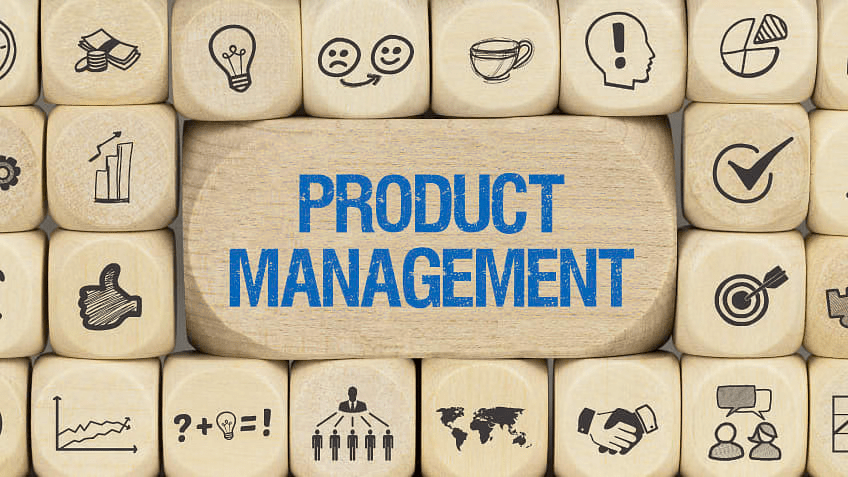
As we enter 2024, the dynamics of product management are shifting towards a blend of technological savvy, user-centric design thinking, and strategic agility. This article delves into the 15 essential product management skills that significantly affect how products are conceived, developed, and launched in today's market. These skills form the backbone of effective product management, from strategic thinking that aligns product development with long-term business goals to data-driven decision-making that ensures informed and impactful choices. Additionally, soft skills like leadership, communication, and stakeholder management have become indispensable in navigating the complex cross-functional landscapes typical of modern organizations.
Importance of Developing Strong Product Management Skills
Developing strong product management skills is crucial in today's fast-paced and competitive business environment. Product management encompasses a broad range of responsibilities that bridge the gap between the development team, stakeholders, and the market. The importance of these skills can be broken down into several key areas:
1-Understanding Market Needs
Customer Insight: Product managers with strong research and analytical skills can better understand customer needs and market demands.
Competitive Analysis: A deep understanding of the competitive landscape helps product managers position their products effectively, identify gaps in the market, and exploit opportunities for differentiation.
2-Strategic Vision and Decision Making
Product Strategy: Effective product management involves setting clear goals and developing a strategic vision for the product.
Prioritization: With often limited resources and time, the ability to prioritize tasks based on their potential impact on the market and alignment with business objectives is crucial.
3-Cross-Functional Leadership and Communication
Team Coordination: Product managers must work closely with diverse teams, including development, marketing, sales, and customer support.
Stakeholder Management: It is vital to manage expectations and communicate effectively with stakeholders, including investors, executives, and customers.
4-Execution and Problem-Solving
Agile Methodologies: Familiarity with agile development practices allows product managers to adapt to changes quickly, make iterative improvements based on feedback, and efficiently manage the product development process.
Risk Management: Identifying potential risks and obstacles early and planning to address them is crucial for minimizing disruptions to the product development timeline and ensuring the product's successful launch.
5-Customer-Centric Approach
User Experience (UX): A strong focus on UX ensures that the product is not only functional but also intuitive and enjoyable to use.
Feedback Loop: Establishing a continuous feedback loop with users helps make data-driven decisions, improve the product over time, and stay responsive to customer needs and market trends.
Qualifications Needed to Become a Product Manager
Becoming a product manager (PM) involves a blend of formal education, practical experience, and key skills that allow an individual to excel in managing products from conception to launch and beyond.
Formal Education
Bachelor’s Degree: Degrees in business, computer science, engineering, marketing, or related fields can provide a solid foundation.
Master’s Degree: An MBA or a master's degree in a relevant field can be advantageous, especially for advancement into higher management roles.
Practical Experience
Industry Knowledge: It is crucial to understand the industry in which you wish to work (e.g., tech, healthcare, finance). This can be gained through work experience, internships, or personal projects.
Cross-functional Experience: Experience in roles that interact with multiple facets of a business (such as sales, marketing, engineering, or customer service) can be incredibly valuable.
Product Management Experience: Direct experience as a product manager or in a product management-related role (e.g., product owner, project manager) can be essential.
Skills and Competencies
Technical Skills: While not always mandatory, technical skills or understanding of the technology relevant to the product can be extremely beneficial, especially in the tech industry.
Business Acumen: A strong grasp of business fundamentals, market analysis, and strategy is crucial for making decisions that align with the company's goals.
Communication and Leadership: Excellent verbal and written communication skills, along with leadership qualities, are essential for leading teams, negotiating with stakeholders, and advocating for your product.
Critical Thinking: The ability to analyze problems, think critically, and devise effective solutions is key in the role of a PM.
Customer-focused: Understanding customer needs and translating them into product features is fundamental. This often requires strong research and analytical skills.
Agility and Adaptability: The product landscape can change rapidly, so it is vital to be able to adapt and manage change.
Certifications and Continuous Learning
Product Management Certifications: Certifications such as Professional Certification In Product Management, Product Management Professional Program, or Scrum Product Owner certification can enhance a resume.
Continuous Learning: Engaging in continuous learning through workshops, seminars, online courses, and industry conferences can keep a PM's skills sharp and relevant.
Networking and Personal Branding
Networking within professional communities and building a personal brand can also be instrumental in launching and advancing a career in product management.
The original content of the note was published on Simplilearn.com. To read the full note visit here